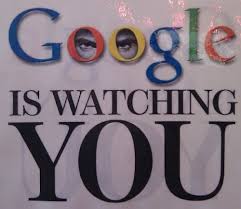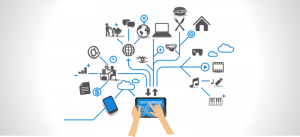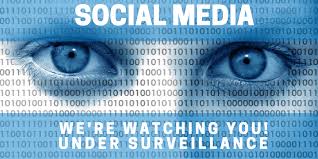 Nearly everything is online these days, from Facebook to Twitter to smart homes and smart cars. No one likes to be spied on. It is deeply unpleasant to think that technology is monitoring and recording your every move when you are innocently browsing the web. On social media, everything you do is recorded. The time you log in, the posts you watch, the posts you like, the groups you join, all movements are saved, categorized, and analyzed.
Nearly everything is online these days, from Facebook to Twitter to smart homes and smart cars. No one likes to be spied on. It is deeply unpleasant to think that technology is monitoring and recording your every move when you are innocently browsing the web. On social media, everything you do is recorded. The time you log in, the posts you watch, the posts you like, the groups you join, all movements are saved, categorized, and analyzed.
You don’t have to be a major player for the government to be interested in slinking into your computers and phone conversations. Recently a writer wrote that she was denied when she tried to write a review for a book on Amazon. She received a reply after contacting Amazon directly, stating that she could not post her review “because her account activity indicates that she knows the author.” The writer stated that she does not know the author personally except for a brief interaction on social media. It may seem as if the invasion into her world of social media was harmless, but it is easy to make inedequate assumptions that affect more than just our desire to write a good book review. So we’re being spied on? Yes. Is it harmful necessarily? We’re not quite sure yet.
 It’s been known for a long time that Google takes information from our searches and then provides advertising with this information. Researchers at the University of Polytechnic in Catalonia have already found evidence that certain online retailers use profiling to discriminate against certain customers.If you are identified as a high value shopper, you are likely to be directed to more expensive products, or even charged more for the same item than other visitors. And that’s just the beginning. Experts warn that if you apply for a loan or a job, your online activity may be taken into account in the future.
It’s been known for a long time that Google takes information from our searches and then provides advertising with this information. Researchers at the University of Polytechnic in Catalonia have already found evidence that certain online retailers use profiling to discriminate against certain customers.If you are identified as a high value shopper, you are likely to be directed to more expensive products, or even charged more for the same item than other visitors. And that’s just the beginning. Experts warn that if you apply for a loan or a job, your online activity may be taken into account in the future.
So again, the question of how all this spying is truly dangerous.Since so much of what we own is connected to WiFi or satellites, hacking “smart” is becoming increasingly common. When it’s a phone conversation or giving websites access to our contacts with Google, we don’t think too much about “harm.” But what if hacking wasn’t just for our smart phones and smart computers?
 In the twenty first century, with the invention of smart refrigerators, camera enabled doorbells and smart cars hacking into not only our personal information, but our physical lives are alsoin danger. Hacked car risks are far more dangerous than the risks associated with hacked phones and computers. Recent experiments by Jeep, BMW and Webtech Plus revealed that hackers could access climate control, turn on wipers and spray wiper fluid that could potentially blur a driver’s vision, and could even take control of the transmission, slowing the car to a complete halt despite the driver stepping on the gas. It can be a frightening thought that stalkers, exes, and anyone who might want us harm can access our vehicles.
In the twenty first century, with the invention of smart refrigerators, camera enabled doorbells and smart cars hacking into not only our personal information, but our physical lives are alsoin danger. Hacked car risks are far more dangerous than the risks associated with hacked phones and computers. Recent experiments by Jeep, BMW and Webtech Plus revealed that hackers could access climate control, turn on wipers and spray wiper fluid that could potentially blur a driver’s vision, and could even take control of the transmission, slowing the car to a complete halt despite the driver stepping on the gas. It can be a frightening thought that stalkers, exes, and anyone who might want us harm can access our vehicles.
Therefore, even if you don’t have anything to hide, it may be wise to minimize your online tracking exposure. And while all this information is mostly used to target ads for now, this may not be the case for a long time to come.
References:

